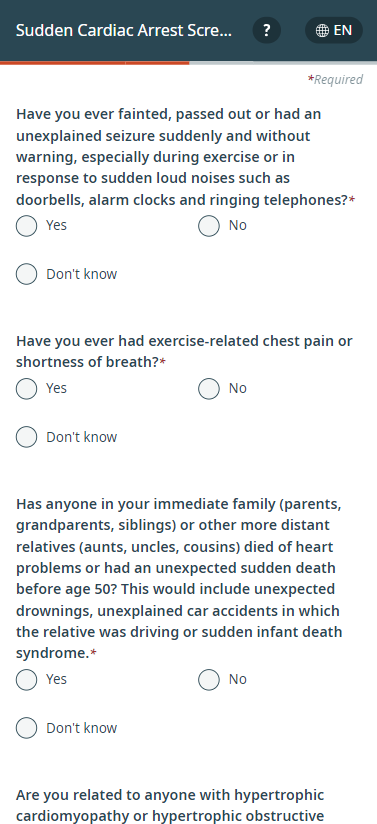Summary
Don’t have time to read the entire 24.5 Release Notes? We understand—you’re busy! Use the table of contents on the left to easily jump to different sections, if needed.
Early Access
Review “notifications actioned” report
Review notifications are triggered whenever there’s a change in patient-related data in your EHR or PM system, but until now, there wasn’t a way to monitor those changes at the organization level. A lack of visibility could lead to oversights across processes.
Now, we’re generating a new weekly report to help you monitor the number of review notifications that have been triggered and resolved. You can view insights at the summary level or access a more granular view of the number of review notifications received and completed.
You’ll be able to access the report from the Phreesia Dashboard under the “Analytics” tab.
Reach out to your Phreesia representative if you’re interested in joining this early access opportunity.
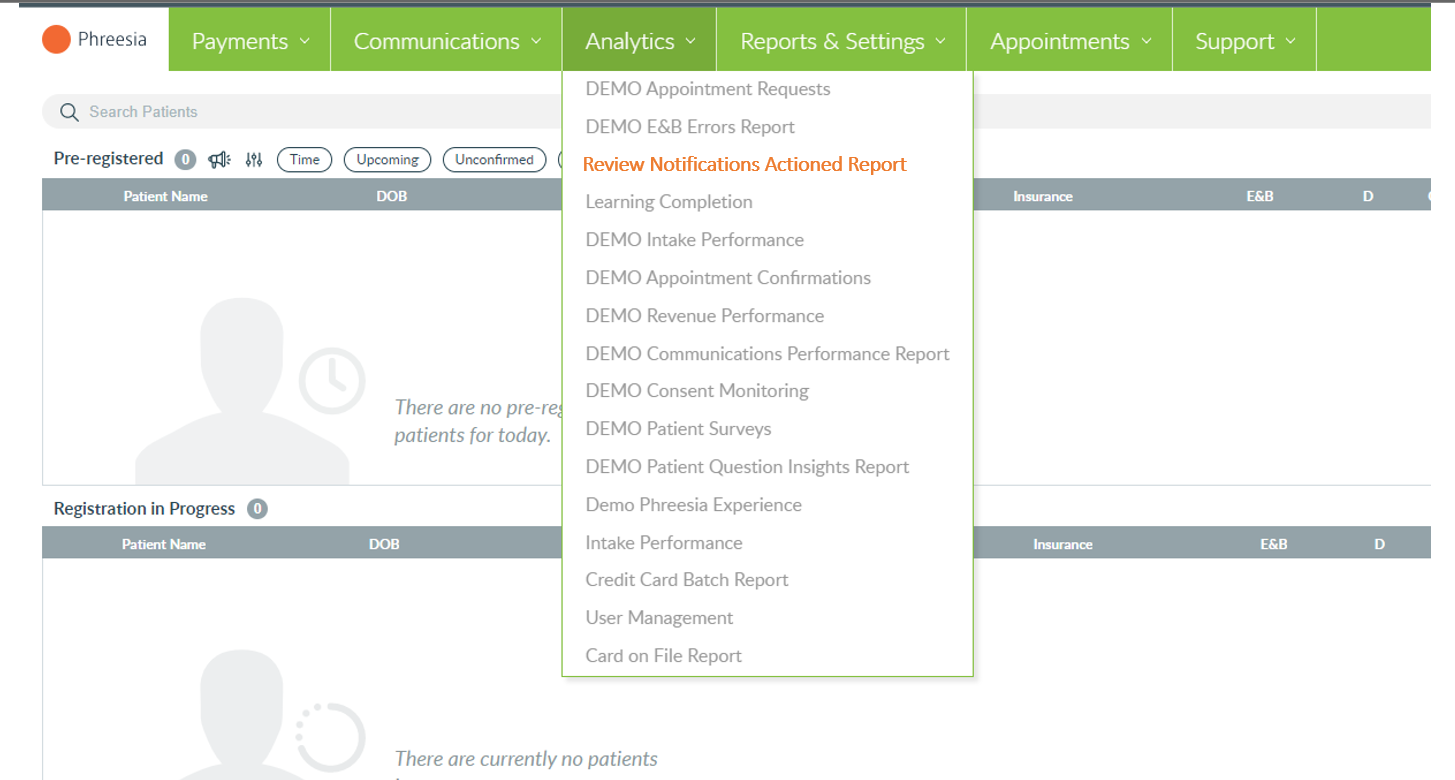
Appointments
Type-ahead search to improve Dashboard filters
We have now added a convenient type-ahead search bar to help you filter your dashboard more efficiently. Organizations with many providers can more easily select the providers they want to filter by, without having to scroll through the entire list.
This feature will be automatically available.
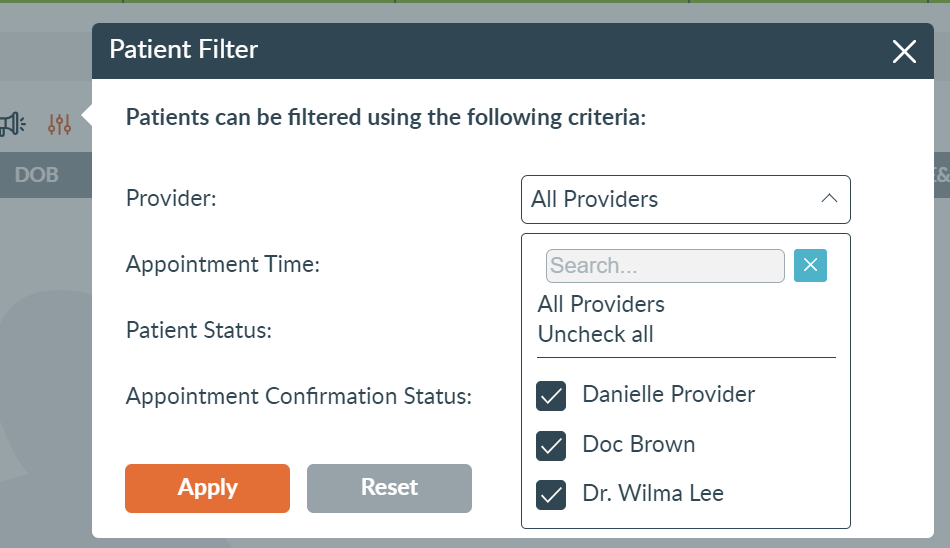
Updated first and middle name field requirements on appointment request and self-scheduling forms
We’ve updated the requirements to fill out the “First Name” and “Middle Name” fields on appointment requests and self-scheduling forms. Previously, patients’ entries wouldn’t be accepted if they only submitted one character in either of these forms. We’ve changed that so these fields only require one character to be considered complete.
This update will take effect automatically.
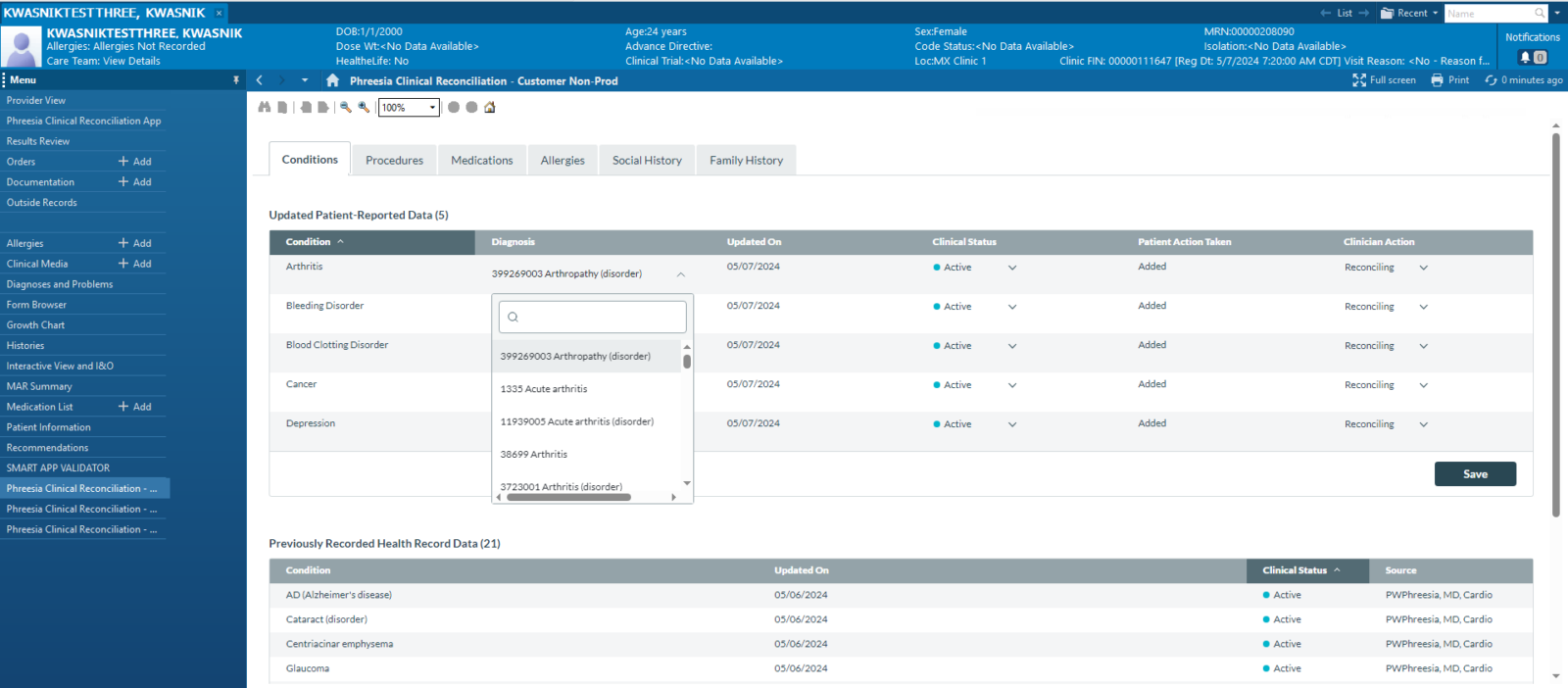
Prefilled appointment type information on redirected appointment requests
If your EHR or PM system doesn’t support self-scheduling for new patients but does support appointment requests, it can be difficult to direct patients to the provider or location they want to visit. When a patient clicks into a targeted self-scheduling link on a provider profile, they’re redirected to an appointment request link instead. Still, they expect that the provider is prefilled on the appointment request form.
Now, we prefill information on these forms to meet that need. When new patients are redirected to the appointment request form from the self-scheduling link, they will now see the same visit type, provider and location parameters on the request form as they would have seen on the self-scheduling form.
This update will take effect automatically for organizations using appointment requests for new patients.
Clinical
Updated conditions list for Oracle Health Millennium 14.0
Previously, when logging a patient’s conditions in Oracle Health, staff’s condition category input would automatically save to the most common diagnosis under that category. That wasn’t always accurate, so staff needed to edit and choose the correct diagnosis.
Now, when staff choose a condition category, they will receive a list of codes and descriptions of conditions under category and be prompted to choose the most accurate option.
This update will take affect automatically for organizations using Oracle Health Millennium 14.0.
Eligibility and Benefits
Automated vision copay selection for additional payers
We now automatically select the well vision exam copay for the following payers:
- VSP
- EyeMed
- Superior Vision
- Superior Vision Versant Health
- Davis Vision
- Envolve Vision
- Absolute Medicare – Medicaid Plan, ATCC
- Absolute Total Care + Ambetter, ATCC
- Ambetter from Absolute Total Care, ATCC
- Ambetter of Illinois Insured by Celtic, AMIL
- Ascension Complete – Illinois, ASIL
- WellCare from Absolute, ATCC
- WellCare Medicare Advantage – IL, WCIL
- WellCare Medicare Advantage – SC, WCSC
That means staff no longer need to manually select copays for patients using these payers.
This feature will be automatically available.

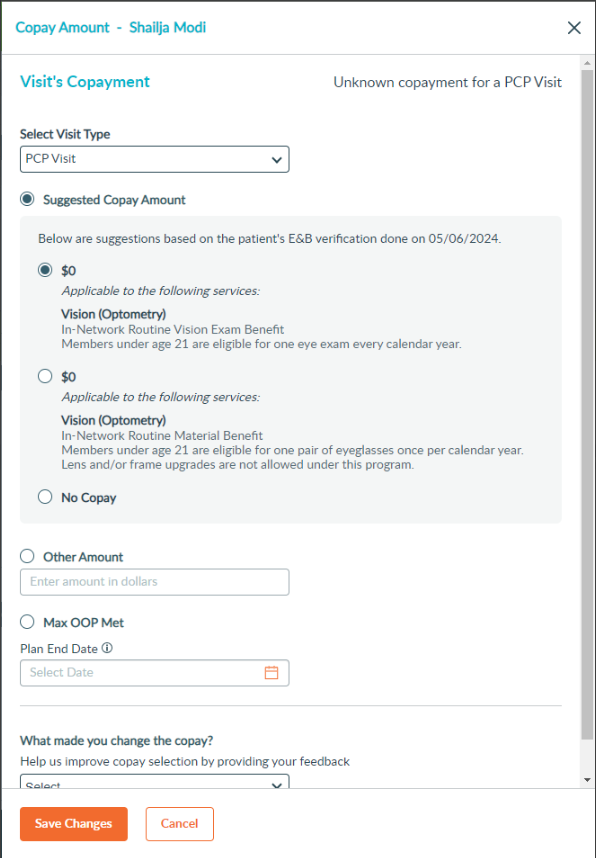
MediFind
Integrate MediFind appointment requests’ locations in the Appointments Hub
Many organizations filter appointment requests by location, but requests submitted through MediFind didn’t include the location when they integrated into the Appointments Hub. That caused staff to overlook those requests when filtering appointment requests in the Hub by location.
To avoid that, appointment requests sent through MediFind will now auto-populate the location when they integrate into your Hub. Staff will be able to view and schedule MediFind requests more quickly, providing a better patient experience.
This feature will be automatically enabled upon release.
Payments
Payment plans using Apple Pay® no longer expire prematurely
Previously, when patients set up payment plans with Apple Pay, their plans automatically canceled after the first payment because the system incorrectly flagged that the payment card had expired. We’ve resolved the issue, so payment plans using Apple Pay will no longer be canceled after the first payment and your organization can continue offering this convenient option.
Apple Pay® is a registered trademark of Apple Inc.
Privacy and Security
Configure the ‘Remember my browser’ duration for two-factor authentication
You can now adjust how long users’ browsers will “remember” two-factor authorization (2FA)—meaning you can tailor the amount of time that will pass before the Phreesia system prompts users to sign in with 2FA again. This period can be set anywhere between 0-30 days, giving you more control over your organization’s security procedures.
For additional details or to request a change to the duration, please reach out to your Phreesia representative or Phreesia customer support.
Registration
In-office mobile session will be immediately completed if a patient is manually checked in by staff
Previously, if a staff member manually checked in a patient before the patient finished completing mobile check-in, the patient’s mobile session could still be completed. This scenario often results in duplicative information, documents and payments being sent to the EHR.
Now, that will no longer occur. When a manual check-in occurs during an in-office mobile session, the session will immediately end and bring the patient to the final visit instructions page. Information will be submitted to the EHR at the time of the manual check-in action only. This update will skip any modules that the patient had not yet filled out at the time of the manual check-in action.
This update will be automatically enabled upon release.
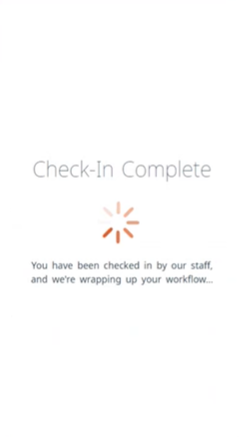
Standardized content
New PHR: CDC Developmental Milestones Checklist
We now offer a standalone CDC Developmental Milestones Checklists module and have updated it to include gender-inclusive language.
These 12 checklists give providers valuable information on milestones used for developmental surveillance and allows them to more easily identify when a child needs intervention.
For additional details or enablement instructions, please reach out to your Phreesia representative.

New PHR: Preparticipation Physical Evaluation Form
We now offer the American Academy of Pediatrics (AAP) Preparticipation Physical Evaluation Form to help providers collect the important medical history and other information during student sports physicals.
For additional details or enablement instructions, please reach out to your Phreesia representative.

New PHR: Hepatitis B & C Screening Questionnaire
We now offer a global Hepatitis B & C Screening Questionnaire that asks the patient if they know their hepatitis status and whether they’re interested in getting screened during their visit.
For additional details or enablement instructions, please reach out to your Phreesia representative.
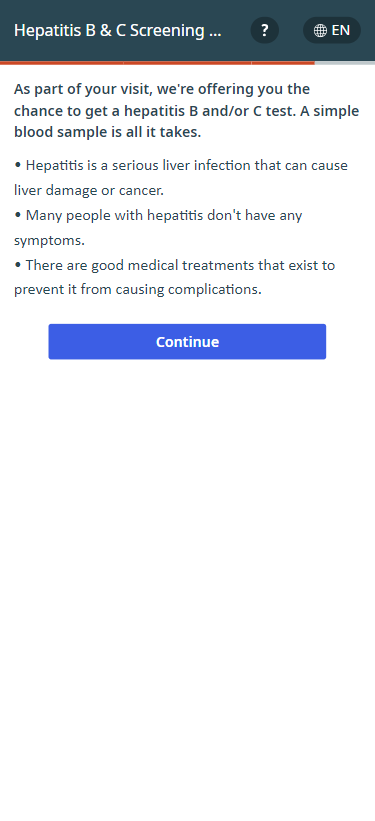
New PHR: Penn Shoulder Score (PSS)
We now offer a global Penn Shoulder Score (PSS) screening tool that gives providers valuable information on patients who have shoulder injuries and assesses their level of pain and impact to function.
For additional details or enablement instructions, please reach out to your Phreesia representative.
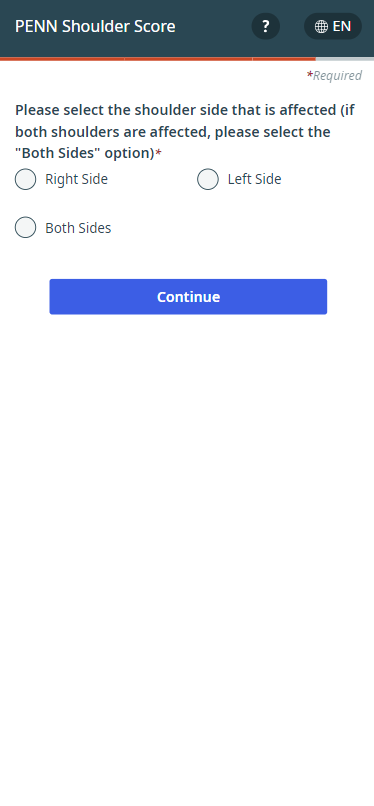
New PHR: Alcohol Use Disorders Identification Test (AUDIT-C/AUDIT)
We now offer a global AUDIT-C/AUDIT module. Providers can conduct initial alcohol use screening via the AUDIT-C and then trigger the remaining questions of the full AUDIT depending on how the patient answers the AUDIT-C.
For additional details or enablement instructions, please reach out to your Phreesia representative.

New PHR: Sudden Cardiac Arrest Screening
We now offer a global Sudden Cardiac Arrest Screening tool that allows providers to screen for cardiac arrest risk factors in their pediatric patient populations.
For additional details or enablement instructions, please reach out to your Phreesia representative.
